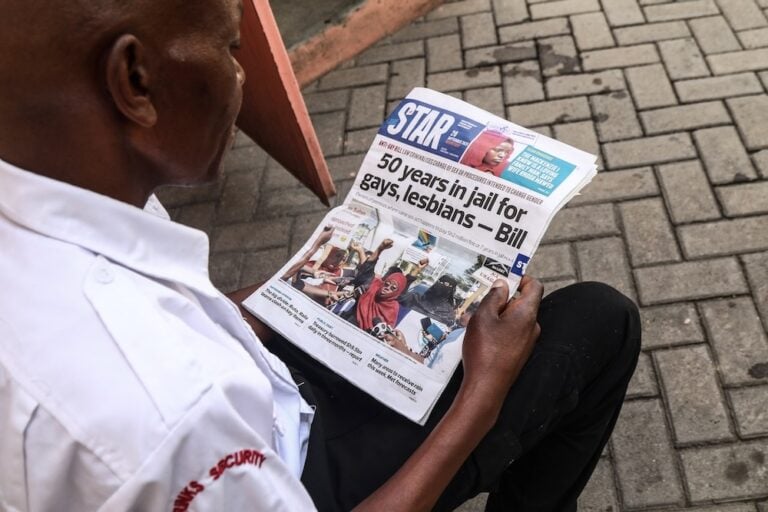(HRW/IFEX) – The following is a Human Rights Watch press release: Kenya: Media Law Should Be Dropped (New York, May 10, 2002) – Kenya’s parliament should reject a bill aimed at government control of newspapers, Human Rights Watch said today. A proposal to impose exorbitant publishing fees could handicap newspapers economically and silence new voices, […]
(HRW/IFEX) – The following is a Human Rights Watch press release:
Kenya: Media Law Should Be Dropped
(New York, May 10, 2002) – Kenya’s parliament should reject a bill aimed at government control of newspapers, Human Rights Watch said today. A proposal to impose exorbitant publishing fees could handicap newspapers economically and silence new voices, Human Rights Watch said.
The new bill appears to be designed to mute public criticism in the run-up to national elections to be held by the end of this year. President Daniel arap Moi is stepping down after two decades in office, and the country’s constitution is under review.
“This measure could muzzle the press in a critical election year,” said Peter Takirambudde, executive director of Human Rights Watch’s Africa division. “Freedom of expression has never been more important in Kenya.”
Current Kenyan law already constricts publishers by requiring them to register with the government, pay a libel insurance bond, and submit copies of every publication to a government registrar. Proposed amendments to the Books and Newspapers Act raise that bond amount one hundredfold, from US$128 to US$12,800. They also penalize vendors and distributors who don’t establish whether publishers of every publication they sell have registered and paid up. Penalties for a first offense include fines up to $12,800, three years in jail, or both.
“In effect, these fees could curb the right to freedom of expression,” said Takirambudde. “And that right is enshrined in international law and Kenya’s own constitution.”
The measure is an attempt to eradicate a proliferating “gutter press,” according to the government. But critics claim politicians are trying to cushion themselves from embarrassing revelations before the election. Journalists and media owners, who insist they can clean up the industry on their own, have drafted a code of ethics and are forming a regulatory council.
The latest media bill follows a recent series of defamation and libel cases against newspapers and bookstores, in which high government officials, including President Moi, have won record damages.


